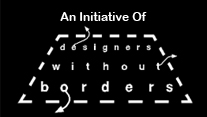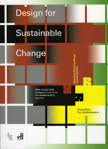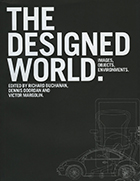David Stairs
Affluence isn’t free.
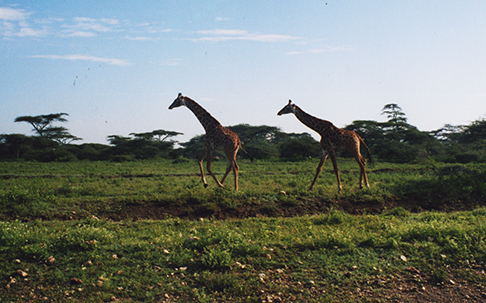
Giraffes at a gallop on the Serengeti, Tanzania
In May 2019 the UN released a report about the state of the natural world. The Intergovernmental Science-Policy Platform on Biodiversity and Ecosystem Services reported that species are going extinct at an unprecedented rate, and that the rate is accelerating.
IPBES Chair, Sir Robert Watson, stated that catastrophe could still be averted by ‘transformative change’ but warned, “…by its very nature, transformative change can expect opposition from those with interests vested in the status quo, but also that such opposition can be overcome for the broader public good.”

Elephants in Queen Elizabeth Park, Uganda
In America it is difficult to defend the view that privilege carries responsibilities. Everywhere one turns for examples one is met by negative instances, from the occupant of the White House on down to individual citizens, and including many major corporations. I can only think of a couple instances of responsible corporate behavior, and that from exemplary players like Tesla and Herman Miller.
Nathan Shedroff, the founder of a MBA program in design strategy at CCA, is greatly invested in expanding the intersection of design and business, as are Jessica Helfand and Michael Beirut, who run both a podcast and a conference entitled The Design of Business/The Business of Design. None of these people seem to have a clue that design is complicit in its role in the degradation of nature, or that a merger of design and business is bad for nature. It’s as though no one can apply what the Eames’ taught us about orders of magnitude to our effect on the environment.
A few examples will suffice. The IPBES report states that there has been a 10x increase in plastic pollution worldwide since 1980. Every clever new cost-saving application of plastic to packaging adds to the nightmare scenario. I can’t get my preferred brand of environmentally friendly cat litter in anything but a plastic bag. I can’t buy house paint that does not come in a plastic container. Given current recycling trends— nowhere left to offshore plastic except the ocean— this does not bode well. The coffee section of my grocery store has been taken over by hundreds of flavors of coffee all available in Keurig-friendly plastic pods. It is estimated that over 40% of American homes are currently outfitted with a Keurig machine, quickly vaulting this new beverage phenomenon into the waste-crisis category.
The difficulty for designers is that, although society as a whole has defined a problem, no one seems able to propose effective examples of ‘transformative change.’ It would seem a crisis custom-made for a group of self-styled problem solvers like designers. Instead, the profession is locked in a “head-up-butt” position, like major corporations that fail the self-regulation test.
Americans, as the primary example of over-indulged humans, are burdened by a plethora of choice, as any trip to the store will attest. Increasingly, as the returns from environmental degradation come to devalue the quality of life, Americans might discover that their highly-valued “freedom of choice” is really just slavery by another name.
The concept of free will has been a topic of philosophical contention for thousands of years. It factors into any discussion of whether a person has control in this life. It has been codified into law through famous documents, like the Declaration of Independence (1776), or the US Constitution (1787). But these examples of Enlightenment-era thinking were written at a very different time, long before humanity was exerting terminal pressure on the natural environment. For a modern American to adhere to a belief in perpetually extensible freedom of choice is tantamount to a death wish. In fact, philosopher John Zerzan refers to techno-capitalism as a “death trip.” And a lot of people seem to be coming down on the side of death these days.
How might we better behave? Building electric cars and connecting the power grid to a sustainable source is a start, but a high-end solution, and one governments have done a poor job of promoting. What about simply limiting individual choice? This will seem like a facile suggestion to some. After all, at D-A-P we’re already on record as being dubious about human self-regulation. But perhaps a little “imposed regulation,” that boogeyman of libertarians, may be necessary.
China, famous for draconian edicts, codified a one-child-per-family restriction in an effort to control runaway population growth. China has been the world’s most populous nation since the time of the Roman Empire, so it would seem a good place to start thinking about zero population growth, albeit at a cost to personal freedom. Unfortunately, China is also the nation recently implicated as the source of illegal CfC emissions, ignoring the 1987 Montreal Protocol, the world’s first effective climate accord. Some you win, some not as successful.
Auto manufacturers are required by government to demonstrate improvements in the overall efficiency of their fleets. This allows GM to offset the production of millions of big Silverado pick-up trucks and Tahoe SUVs by selling a few ten-thousands of Chevy Bolt electric vehicles. Again, this is looking at the problem from the wrong end of the telescope. What if vehicle owners were taxed by the mile for vehicles that fell outside certain efficiency thresholds? If citizens were forced to shoulder the true cost of inefficiency, you would soon see changes not only in the way vehicles were designed, but in the way people drive. Just as asbestos litigation bankrupted its liable manufacturers over the past forty years, markets, so finely attuned to customer satisfaction, would instantly respond.
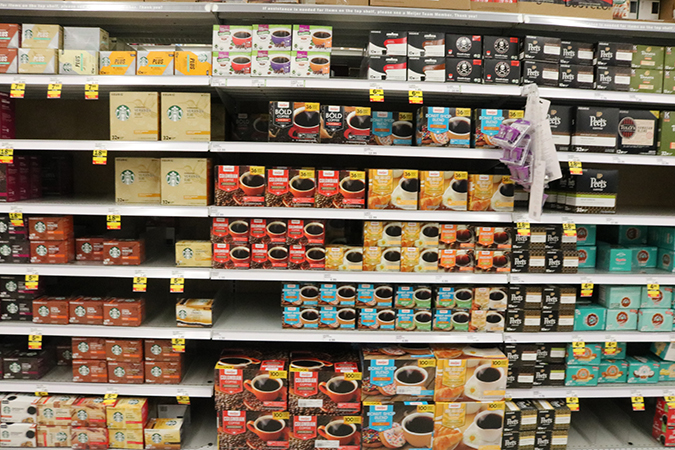
The days of unlimited choice of Keurig flavors are coming to a close
As improbable as such examples seem, it is not improbable to state that we are coming to an era of reduced choice. In market economies, choice has always been driven by the false ideal of unlimited growth. Now that it is obvious to a first-grader that unlimited growth cannot coexist with a finite ecosystem, perhaps designers, engineers, advertisers, industrialists, and the politicians who represent them should face the music and hop off the economic merry-go-round before we spin the Earth itself right off its axial gyre.
Choice costs. Unlimited choice is insupportable. Don’t ask Madison Avenue for its opinion on this matter, but do pay attention to the UN’s biodiversity report. Your great grandchildren will thank you. I’m pretty sure they’d be more interested in a clean sustainable environment than the choice of 400 flavors of coffee. We need to be able to give them this gift.
David Stairs is the founding editor of the Design-Altruism-Project

